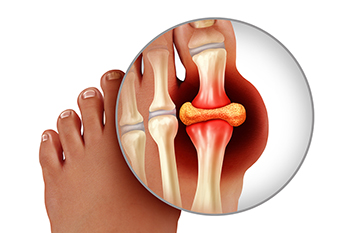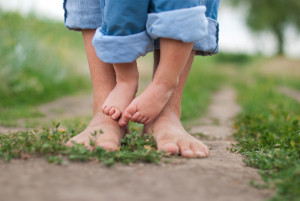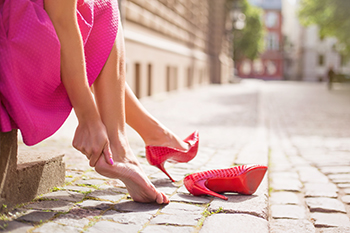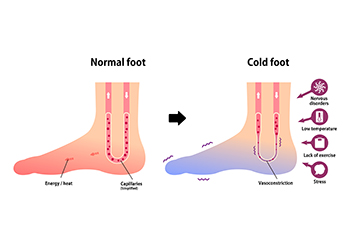Items filtered by date: April 2023
All About Gout Crystals

An arthritic condition known as gout is primarily caused by having an excess amount of uric acid in the system. This buildup produces uric crystals that form in the joints, frequently in the big toe. The result is extreme pain, swelling, redness, and tenderness to the touch. Gout crystals, also known as monosodium urate crystals, accumulate in the joints when the body is unable to remove excess uric acid through the digestive system or kidneys. People with diabetes, weakened kidneys, or metabolism issues may be more likely to experience a buildup of gout crystals. The likelihood of developing them increases if you eat foods that contain high levels of purines. These include seafood, fish, alcoholic drinks, shellfish, and red meats. Other factors that can produce gout crystals are obesity, heart disease, certain types of medication, and genetics. Men tend to be more at risk for gout, especially those between the ages of 30 and 50. In women, symptoms are more likely to develop after menopause. For help with recurring gout flare ups, it is suggested that you consult with a podiatrist who is trained to deal with this condition.
Gout is a foot condition that requires certain treatment and care. If you are seeking treatment, contact Dr. Douglas Mckay from New Jersey . Our doctor will treat your foot and ankle needs.
What Is Gout?
Gout is a type of arthritis caused by a buildup of uric acid in the bloodstream. It often develops in the foot, especially the big toe area, although it can manifest in other parts of the body as well. Gout can make walking and standing very painful and is especially common in diabetics and the obese.
People typically get gout because of a poor diet. Genetic predisposition is also a factor. The children of parents who have had gout frequently have a chance of developing it themselves.
Gout can easily be identified by redness and inflammation of the big toe and the surrounding areas of the foot. Other symptoms include extreme fatigue, joint pain, and running high fevers. Sometimes corticosteroid drugs can be prescribed to treat gout, but the best way to combat this disease is to get more exercise and eat a better diet.
If you have any questions please feel free to contact one of our offices located in Caldwell, and Galloway, NJ . We offer the newest diagnostic and treatment technologies for all your foot and ankle needs.
Changes in Children's Feet

Children’s feet differ greatly from adult feet. When comparing the two, the shapes are different. In the first year, the cartilage is soft, and there are additional fat pads on the soles. This can give the feet added flexibility that may diminish as one ages and the bones become stronger. Research has shown it may be beneficial for the child to walk barefoot while indoors, which may help to strengthen the overall foot. It is desirable for children to wear shoes while walking outside, and this can help to protect the feet. When it is time for the first pair of shoes to be purchased, many parents will buy shoes that are lightweight and have flexible soles. A child’s foot changes during the first five years. It is helpful to properly measure their feet often during this time, as different size shoes are often needed. Many parents notice the average life of a pair of shoes is approximately four months, and this can vary, depending upon the quality of the shoes. If you have questions about your child’s foot health, it is suggested that you consult with a podiatrist who can provide you with the knowledge you are seeking.
Making sure that your children maintain good foot health is very important as they grow. If you have any questions, contact Dr. Douglas Mckay of New Jersey . Our doctor can provide the care you need to keep you pain-free and on your feet.
Keeping Children's Feet Healthy
Having healthy feet during childhood can help prevent medical problems later in life, namely in the back and legs. As children grow, their feet require different types of care. Here are some things to consider...
Although babies do not walk yet, it is still very important to take care of their feet.
Avoid putting tight shoes or socks on his or her feet.
Allow the baby to stretch and kick his or her feet to feel comfortable.
As a toddler, kids are now on the move and begin to develop differently. At this age, toddlers are getting a feel for walking, so don’t be alarmed if your toddler is unsteady or ‘walks funny’.
As your child gets older, it is important to teach them how to take care of their feet.
Show them proper hygiene to prevent infections such as fungus.
Be watchful for any pain or injury.
Have all injuries checked by a doctor as soon as possible.
Comfortable, protective shoes should always be worn, especially at play.
If you have any questions please feel free to contact one of our offices located in Caldwell, and Galloway, NJ . We offer the newest diagnostic and treatment technologies for all your foot and ankle needs.
Women Are More at Risk for Heel Pain

Studies show that women experience heel pain more frequently than men. Wearing high heels is thought to be the number one cause of heel pain in women. This leaves them more at risk for developing plantar fasciitis, the main complaint of which is heel pain. The band of tissue that runs beneath the foot, called the plantar fascia, becomes inflamed resulting in pain. However, other types of footwear common among women can also contribute to heel pain. Among them are shoes of any type that have a narrow toe box and pointy toes. Changing to footwear that properly supports the foot is one sure way to lower the risk of heel pain. Try to limit the height of heels to 1.5 inches, and check footwear for ample cushioning, arch support, and flexibility in the sole. In addition, starting a regular routine of foot stretches can help relieve tightness in the arch and heel. In some cases, special orthotic inserts for the shoes can diminish pain in the heels. For any type of heel pain that impedes your daily activities, it is suggested that you make an appointment with a podiatrist for an exam to determine the cause and prescribe custom orthotics if needed.
Many people suffer from bouts of heel pain. For more information, contact Dr. Douglas Mckay of New Jersey . Our doctor can provide the care you need to keep you pain-free and on your feet.
Causes of Heel Pain
Heel pain is often associated with plantar fasciitis. The plantar fascia is a band of tissues that extends along the bottom of the foot. A rip or tear in this ligament can cause inflammation of the tissue.
Achilles tendonitis is another cause of heel pain. Inflammation of the Achilles tendon will cause pain from fractures and muscle tearing. Lack of flexibility is also another symptom.
Heel spurs are another cause of pain. When the tissues of the plantar fascia undergo a great deal of stress, it can lead to ligament separation from the heel bone, causing heel spurs.
Why Might Heel Pain Occur?
- Wearing ill-fitting shoes
- Wearing non-supportive shoes
- Weight change
- Excessive running
Treatments
Heel pain should be treated as soon as possible for immediate results. Keeping your feet in a stress-free environment will help. If you suffer from Achilles tendonitis or plantar fasciitis, applying ice will reduce the swelling. Stretching before an exercise like running will help the muscles. Using all these tips will help make heel pain a condition of the past.
If you have any questions please contact one of our offices located in Caldwell, and Galloway, NJ . We offer the newest diagnostic and treatment technologies for all your foot and ankle needs.
Cold Toes May Indicate Raynaud’s Phenomenon

A condition known as Raynaud’s phenomenon is a circulatory problem that causes the blood vessels in the extremities to narrow and restrict blood flow. This can cause the toes to become cold and even turn blue. There are two types of Raynaud’s phenomenon, primary and secondary. Primary has no known cause, but secondary may occur in conjunction with another underlying condition, such as lupus or rheumatoid arthritis. This type is far more serious and can lead to the formation of skin ulcers that may become gangrenous if ignored. Women are more at risk for Raynaud’s phenomenon, and it usually occurs in people in their 30s or younger. Emotional stress and smoking also can trigger attacks. When an attack occurs, the toes become exceedingly cold and may change color, which can evolve into burning and tingling when the toes finally get warmer. If you are having increasing problems with coldness and discoloration in the toes, it is suggested that you meet with a podiatrist who can properly diagnose your condition and offer treatment options.
Poor circulation is a serious condition and needs immediate medical attention. If you have any concerns with poor circulation in your feet contact Dr. Douglas Mckay of New Jersey . Our doctor will treat your foot and ankle needs.
Poor Circulation in the Feet
Poor blood circulation in the feet and legs is can be caused by peripheral artery disease (PAD), which is the result of a buildup of plaque in the arteries.
Plaque buildup or atherosclerosis results from excess calcium and cholesterol in the bloodstream. This can restrict the amount of blood which can flow through the arteries. Poor blood circulation in the feet and legs are sometimes caused by inflammation in the blood vessels, known as vasculitis.
Causes
Lack of oxygen and oxygen from poor blood circulation restricts muscle growth and development. It can also cause:
- Muscle pain, stiffness, or weakness
- Numbness or cramping in the legs
- Skin discoloration
- Slower nail & hair growth
- Erectile dysfunction
Those who have diabetes or smoke are at greatest risk for poor circulation, as are those who are over 50. If you have poor circulation in the feet and legs it may be caused by PAD and is important to make changes to your lifestyle in order to reduce risk of getting a heart attack or stroke. Exercise and maintaining a healthy lifestyle will dramatically improve conditions.
As always, see a podiatrist as he or she will assist in finding a regimen that suits you. A podiatrist can also prescribe you any needed medication.
If you have any questions please feel free to contact one of our offices located in Caldwell, and Galloway, NJ . We offer the newest diagnostic and treatment technologies for all your foot and ankle needs.


